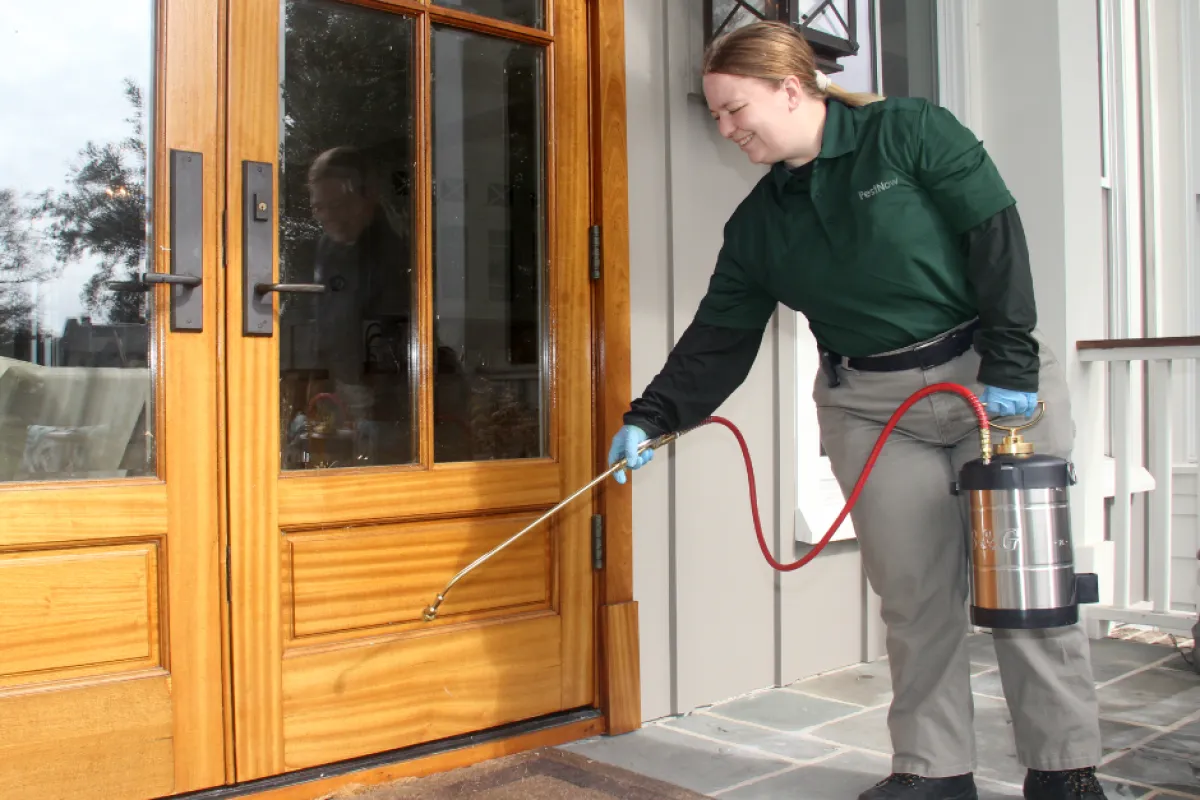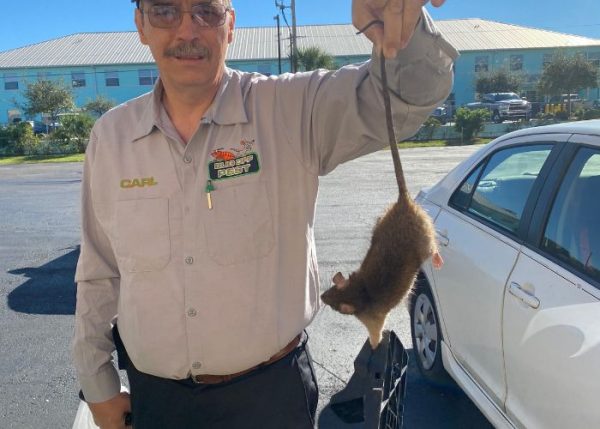Enjoy professional Pest Control in Port Charlotte for total peace of mind now.
Enjoy professional Pest Control in Port Charlotte for total peace of mind now.
Blog Article
Checking Out Innovative Techniques and Products for Effective Insect Control
The landscape of parasite control is evolving, marked by the development of ingenious strategies and products made to enhance effectiveness and sustainability. From wise catches equipped with sophisticated monitoring systems to organic methods that utilize natural predators, these developments provide a paradigm shift in exactly how we come close to pest management. Green chemical alternatives and pheromone disturbance strategies use targeted remedies that align with ecological stewardship. As the industry grapples with these growths, a closer examination discloses not just their implications however additionally the prospective challenges that might occur in their application.
Smart Traps and Keeping An Eye On Systems
Exactly how can modern technology improve bug administration? One substantial improvement is the growth of smart catches and keeping track of systems, which offer real-time information and analytics for effective insect control. These systems utilize sensors and cordless modern technology to detect insect activity, alerting property supervisors and parasite control professionals to problems before they escalate.
Smart catches are furnished with functions such as bait terminals that attract bugs and capture them successfully. These traps can be checked remotely, permitting prompt interventions and lessening the need for comprehensive chemical applications. The integration of equipment knowing formulas allows these systems to distinguish between target pests and non-target types, improving the precision of parasite control measures.
In addition, the information accumulated from wise catches can be analyzed to determine patterns in insect actions and environmental variables adding to invasions (Pest Control in Port Charlotte). This details is indispensable for developing targeted parasite administration strategies tailored to certain atmospheres. By welcoming wise traps and keeping track of systems, insect control experts can boost their functional efficiency and minimize the environmental effect of parasite management, eventually causing more secure and a lot more sustainable methods in the sector
Organic Insect Control Methods
Utilizing all-natural killers and parasites, organic bug control methods use an ecologically friendly option to chemical therapies. This technique involves the introduction or improvement of specific microorganisms that can naturally control insect populaces, thereby reducing reliance on synthetic pesticides. Typical examples include making use of ladybugs to control aphid problems and parasitic wasps to target caterpillars.

Organic control can be classified into three main approaches: classical, augmentative, and conservation. Classic organic control entails importing all-natural adversaries from the parasite's indigenous environment, while augmentative control includes increasing the population of existing natural adversaries through releases. Preservation approaches concentrate on producing conditions that support these helpful microorganisms in the community.
It typically requires a thorough analysis of parasite dynamics and the life cycles of both the insects and their all-natural opponents. As understanding of ecological concerns expands, organic insect control approaches are increasingly identified for their sustainable role in incorporated pest administration programs.
Eco-Friendly Chemical Alternatives
Eco-friendly chemical options provide a sensible service for pest administration that lessens ecological influence while efficiently regulating bug populaces. These options are originated from all-natural resources and are thoroughly formulated to target specific bugs without harming beneficial organisms, making them a vital component of sustainable parasite control techniques.
Among the most efficient environment-friendly choices are plant-based insecticides, such as neem oil and pyrethrin, which are originated from the seeds and flowers of numerous plants. These substances interfere click this site with the life process of bugs, reducing their populations without the poisonous results related to conventional pesticides - Pest Control in Port Charlotte. Additionally, crucial oils like pepper mint and clove oil exhibit repellent buildings, even more enhancing their utility in pest management

Additionally, environmentally friendly chemical choices typically break down quicker in the environment, minimizing the threat of dirt and water contamination. This characteristic aligns with the raising consumer need for sustainable methods in farming and city pest control. As study remains to breakthrough, the growth of ingenious green solutions will certainly even more boost effectiveness and broaden application areas, allowing pest monitoring experts to take on greener, much more accountable Visit Website methods in their practices while protecting human health and the setting.
Pheromone Disturbance Strategies
An additional cutting-edge strategy in sustainable bug monitoring is the use of pheromone interruption methods. These approaches exploit the natural chemical signals, or scents, that pests make use of for interaction, particularly in breeding behaviors. By interfering with these signals, insect populations can be effectively managed without resorting to hazardous chemicals.
Scent catches are frequently utilized in this method. Over time, this can lead to a substantial decrease in pest populations.

Integrated Pest Management Techniques
Reliable parasite control commonly needs a detailed technique, and Integrated Parasite Monitoring (IPM) approaches give a framework for achieving this objective. IPM integrates various management techniques to decrease insect populations while minimizing reliance on chemical pesticides. This multifaceted method begins with detailed surveillance and recognition of bugs, enabling targeted interventions based upon specific parasite pressures.
Cultural techniques, such as plant turning and sanitation, play a crucial role in stopping pest establishment. Organic controls, including natural predators and parasitoids, are utilized to keep pest populaces at manageable levels. When essential, discerning chemical treatments are applied, stressing lower toxicity to non-target varieties and the atmosphere.
Furthermore, education and learning and outreach are integral elements of IPM, promoting awareness amongst stakeholders regarding sustainable techniques and pest life cycles. The adaptability of IPM allows professionals to react effectively to altering insect characteristics and environmental conditions. By utilizing this holistic strategy, IPM not just improves bug control effectiveness but likewise adds to lasting ecological balance. Eventually, Integrated Bug Management stands for a forward-thinking remedy that aligns agricultural performance with ecological stewardship, making it necessary in modern insect control techniques.

Conclusion
In conclusion, the integration of ingenious techniques and items for reliable parasite control represents a substantial development in sustainable bug monitoring. Smart traps and keeping an eye on systems, organic parasite control approaches, environmentally friendly chemical alternatives, and pheromone disturbance methods collectively enhance the effectiveness of pest management approaches.
Report this page